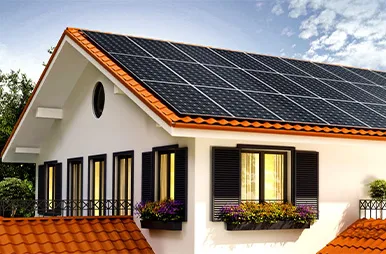Affordable Options for 2000 Watt Solar Panels and Their Price Trends in 2023
Understanding the Cost of a 2000 Watt Solar Panel System
As global awareness of renewable energy increases, more homeowners and businesses seek efficient and sustainable alternatives to traditional energy sources. Among these options, solar energy stands out due to its abundance and decreasing cost. An essential component of a solar energy system is the solar panel itself. This article will focus on the price of a 2000-watt solar panel system, exploring what affects the cost and the benefits of making the switch to solar.
What Does a 2000 Watt Solar Panel System Mean?
A 2000 watt solar panel system is designed to generate an output of approximately 2000 watts of electricity under ideal conditions. This output can significantly reduce energy bills and, depending on the location and installation circumstances, might even allow homeowners to live off-grid or contribute surplus energy back to the grid. The actual number of panels needed to reach this wattage depends on the wattage of individual panels. For example, if typical panels produce 300 watts each, a 2000 watt system would require about 7 panels.
Factors Affecting Solar Panel Prices
1. Quality and Type of Panels Solar panels come in various types, such as monocrystalline, polycrystalline, and thin-film, each with differing efficiencies and costs. Monocrystalline panels, while more expensive, tend to be more efficient and occupy less space.
2. Installation Costs The price of professional installation can vary widely based on geographical location, the complexity of the installation, and local labor rates. On average, installation can add significantly to the total cost of a solar system.
3. Incentives and Rebates Various federal, state, and local incentives can reduce the overall cost of a solar system. For example, the federal solar tax credit allows consumers to deduct a significant percentage of the installation cost from their federal taxes.
2000 watt solar panel price

Estimated Costs
As of 2023, the average cost of solar panels can range from $0.70 to $1.50 per watt, depending on the factors mentioned above. For a 2000 watt solar panel system, the raw cost for the panels alone might range from $1,400 to $3,000. Adding installation, which can range from $1,000 to $5,000, the total system cost could fluctuate between $2,400 and $8,000 or more.
Long-term Savings and Benefits
While the upfront costs of a 2000 watt solar panel system may seem substantial, it's essential to consider the long-term savings and benefits. With rising energy costs, solar systems often pay for themselves within five to ten years through savings on electricity bills. Furthermore, many states offer net metering, allowing users to sell excess energy back to the grid, providing additional financial incentives.
Moreover, solar energy is a clean, renewable resource that reduces greenhouse gas emissions, contributing to a healthier planet. It also increases property values and can offer energy independence from fluctuating utility rates.
Conclusion
Investing in a 2000 watt solar panel system can be a transformative decision for homes and businesses alike. While the initial expenses can be significant, the long-term savings, environmental benefits, and increasing availability of financial incentives make solar energy an appealing option. As technology advances and prices continue to decrease, now is an opportune time for individuals to consider making the leap into solar energy, fostering both personal savings and global sustainability.
-
String Solar Inverter: The High-Efficiency Solution for Smart Solar EnergyNewsJul.14,2025
-
Revolutionizing Rooftop Energy with the Power of the Micro Solar InverterNewsJul.14,2025
-
Power Independence with Smart Off Grid Solar Inverter SolutionsNewsJul.14,2025
-
On Grid Solar Inverter: Powering the Future with Smart Grid IntegrationNewsJul.14,2025
-
Monocrystalline Solar Panels: High-Efficiency Power for the Future of Clean EnergyNewsJul.14,2025
-
Bifacial Solar Panel: A Smarter Investment for Next-Generation Energy SystemsNewsJul.14,2025







